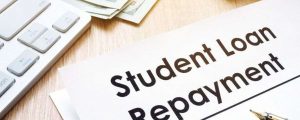
Relief from Student Loan Debt
In a case currently before the 1st Circuit Court of Appeals(includes Maine, Massachusetts, new Hampshire, Puerto Rico, and Rhode Island)Robert Murphy v. U.S. Department of Education the plaintiff seeks to revise the current standards used to determine whether a bankrupt debtor can discharge student loan debt.
By way of background, prior to the Bankruptcy Abuse Prevention and Consumer Protection Act of 2005, Bankruptcy Code §523(a)(8) only applied to obligations for funds received from governmental or nonprofit institutions. By amending § 523(a)(8), Congress intended to broaden the scope of nondischargeable of debts under that section to recognize an important role played by private institutions in providing educational funding for students. In addition to private scholarships and stipends, employer-sponsored tuition reimbursement programs, provide an alternative to prospective students who may be unwilling or unable to finance their education out-of-pocket or with traditional student loan options. Congress reasoned that incentives to provide these programs would be radically altered if employees could renege on their contractual obligations and immediately discharge any resulting liability through bankruptcy.
The current standard requires that the debtor establish that excepting the debt from discharge would cause an undue hardship on the debtor and the debtor’s dependents. In assessing whether debtor was entitled to “undue hardship” discharge of student loan debt, court would apply “totality of the circumstances” test and consider the following: (1) debtor’s past, present, and reasonably reliable future financial resources; (2) debtor’s and his dependents’ reasonably necessary living expenses; and (3) other relevant facts or circumstances unique to case that prevented debtor from paying student loans in question while still maintaining a minimal standard of living, even when aided by discharge of his other prepetition debts.
In the above case the Debtor, aged 63, was able to show that he was unable to repay his student loan debt at the time of the bankruptcy filing or in the short run. His chances of doing so during his remaining years is uncertain, but his prospects for doing so are very poor. This Court of Appeals will now consider whether softening the current standards, which are primarily the product of case law, can be done without subverting the wording of this section of the Bankruptcy Code.
If you have problems with managing debt, including student loans, call me. 570-826-0481 or at 1-800-221-0618(in Pennsylvania only).
I can help!

